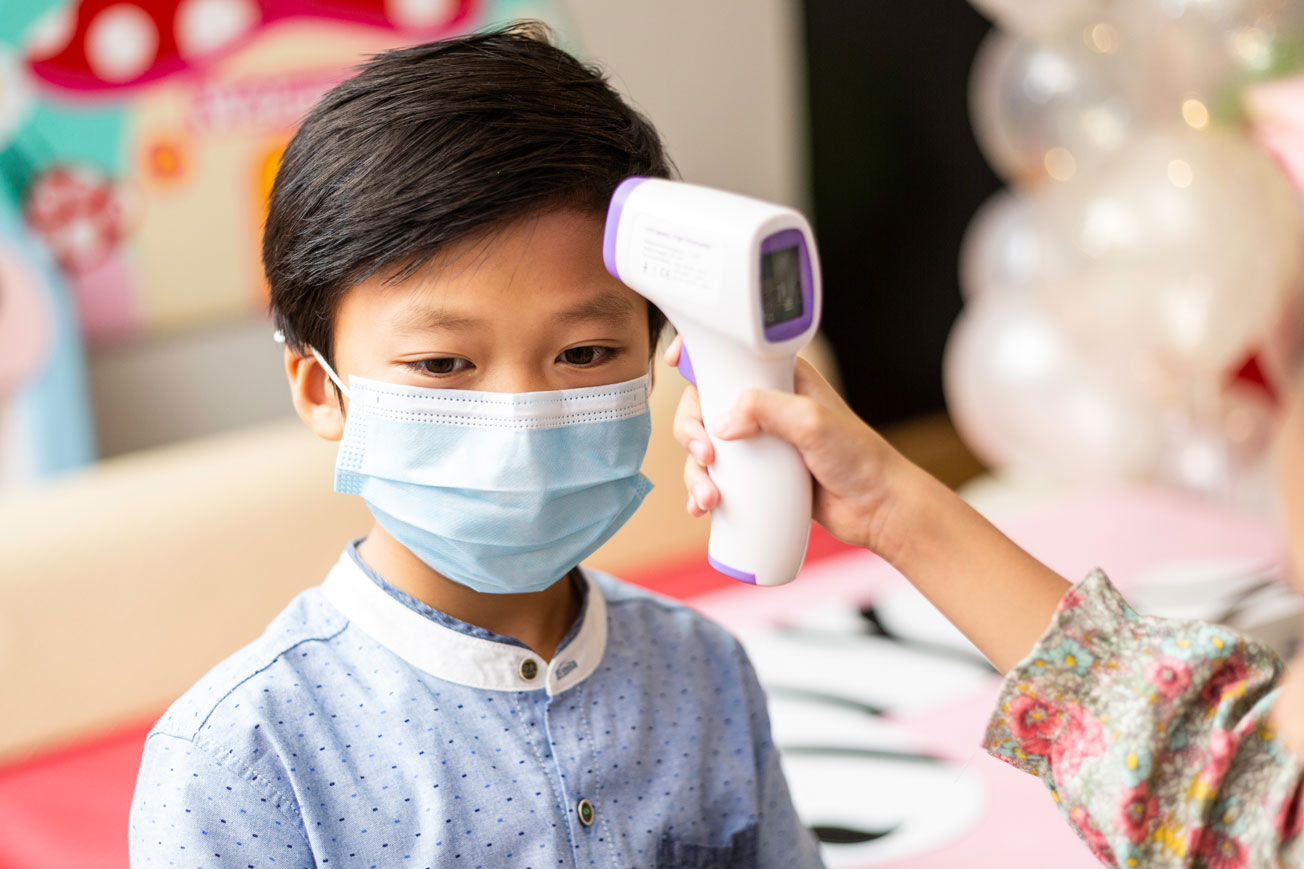Young children are exposed to an array of viruses which can make them fall ill. Common illnesses include Hand, Foot and Mouth Disease, Influenza, Norovirus and so on.
These illnesses can cause the young to develop symptoms such as:

Given their inclination to falling sick, children may also experience multiple overlapping symptoms at a time which makes it difficult for a doctor to accurately diagnose the cause of each symptom. When children are down with illnesses, they can develop complications such as dehydration, sepsis, meningoencephalitis or Kawasaki disease. Left untreated, these complications can lead to fatal consequences.
Therefore, early assessment for the young with early medical intervention is crucial to keep them safe as well as prevent hospitalisation for severe illness.
Additionally, at their young age, children may also be unable to fully articulate the symptoms and discomfort that they are feeling which makes it difficult for a doctor to provide comprehensive care.
This is why it is crucial to choose a medical provider who is able to patiently consult the child and execute a thorough examination so as to be able to accurately diagnose the reasons for each of the symptoms.

Beyond just the acute needs of a child, their development progress is equally important. All parents want the best for their child and for them to grow up well. Broadly speaking, growing up involves two main aspects. Firstly, a child should be growing well physically in terms of height and weight. Secondly, a child should be making progress in the 4 main aspects of their development – Gross Motor, Fine Motor, Social as well as Speech.
A quick gauge for parents would be to compare their children with other children of similar age to see if their children are lagging behind in any of the developmental aspects or growth.
However, similar to early annual health screening in adults, it is also important for children to have regular doctor visits even when they are well. This is crucial as medical professionals are able to track the children’s growth, record it in their health booklet and pick up early signs of poor growth so that early and timely intervention can be possible.
Children also need to be screened regularly as part of developmental assessment to ensure that they are developing well in all 4 domains of development, as many medical conditions can be detected early should there be a growth lag in any of the domains.
Here at Keystone Clinic & Surgery, all our doctors are trained to handle acute and chronic pediatric conditions.
Our medical director, Dr Jackie Lam, was previously a doctor practicing at KK Women’s and Children’s Hospital’s (KKH) Children’s Emergency and still returns occasionally to see patients at KKH during his free time. He has established direct partnership ties with KKH Children’s Emergency under the GPENGAGE program, where all our resident doctors at Keystone Clinic & Surgery will undergo training with KKH to be familiar with basic pediatric conditions.
Keystone Clinic & Surgery also offers a variety of point of care tests such as Influenza swabs, dengue tests, point-of-care ultrasounds as well as specialised blood taking for the pediatric population, all of which aims to provide a cost effective and prompt diagnosis so as to give our young the most appropriate targeted treatment.
All of our resident doctors are also trained to be able to assess a child’s growth, their development as well as the ability to handle vaccinations which are a crucial part of children’s preventive health.

Fever in the young is the most common symptoms of many viral infections, and often the earliest symptoms. Fever is defined as having a body temperature of more than 38 degrees Celsius. When children are having fever, it is common for them to feel more tired, have decreased appetite and decreased activity levels. Regular tepid sponging as well as simple medications are usually effective in controlling fevers in our children.
There are certain features of the fever which can help our doctors with their diagnosis. It is important to note the maximum temperature of the fever, duration and onset of fever, as well as associated symptoms along with the fever.
If in doubt, it is always safer to visit a physician for a thorough physical assessment as children, especially the very young, can manifest illnesses through silent ways.
Vomiting in a child is not to be taken lightly as it limits oral rehydration and can rapidly cause a child to be dehydrated. In an acutely vomiting child, it is important to stop the vomiting as best as we can.
A home remedy would be giving your vomiting child ‘small, frequent feed’. This means that we halve or quarter the portion of their meals, but double or quadruple the frequency that we feed them. This puts less volume in their stomach at any one time, reducing the chances of recurrence of vomiting. Simple yet effective!
However, if the child is persistently vomiting, it is highly recommended to seek medical attention. For children more than 1 year of age, there are medications to stop vomiting. At Keystone Clinic & Surgery, all our clinics carry ondansetron, an anti-vomiting medication that all Emergency Departments in Singapore carry, which is very effective to stop vomiting in a young child. Ondansetron can be given either in the form of an injection or oral, depending on doctor’s discretion on the severity of the child’s vomiting.
Most children recover well from a viral infection. However, there are warning signs that parents should be aware of which warrants early medical assessment and intervention.
A non-exhaustive list include:
Most children are active in nature and injuries are common. Lacerations, bruises, abrasions are commonly seen in our active young.
However, all wounds should ideally be assessed by a trained medical professional and should not be left alone. If left opened, it could lead to uncontrolled bleeding, poor healing, infections and extensive scarring. As part of many guidelines, all lacerations should ideally be closed within 6 hours from time of injury.
At Keystone Clinic & Surgery, our doctors are trained and well equipped to handle wounds in children. Lacerations requiring suturing, tissue glue dressings or steri-strips which can be managed in the clinic setting with appropriate painkillers and numbing creams/injections.